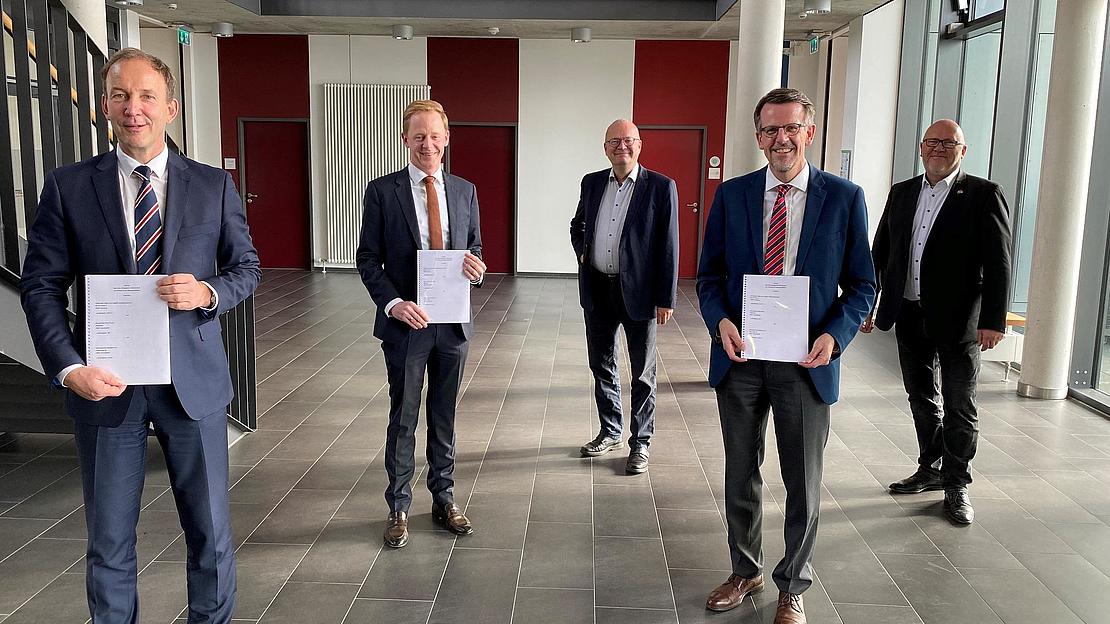06.10.2020

The partners’ goal is to shift more freight traffic onto the Lower Elbe waterway. The transport system of inland ports, inland waterway ships and waterways provides environmentally friendly, efficient and safe transport options. An inland waterway ship requires relatively little energy per transport unit and is a reliable means of transport in terms of sustainable and economical optimisation of the transport chain.
The Port of Hamburg is the largest seaport and also the second-largest inland port in Germany. Around 10,000 inland vessels dock each year at the handling facilities of this major metropolitan region on the Elbe. Since 2012, the annual volume of container traffic reaching or leaving the Port of Hamburg has grown by 50 percent to around 140,000 standard containers. The Lower Elbe connects the Port of Hamburg with the ChemCoast Park in Brunsbüttel, the largest contiguous industrial area in Schleswig-Holstein. It accommodates international groups and medium-sized companies in the chemical, energy and logistics sectors.
The cooperation partners plan to further expand freight traffic by inland waterway ship between the port locations by targeting potential shippers. The attractiveness of inland waterway shipping, with its economic and ecological advantages, will be more strongly promoted. Moreover, additional partners will be engaged to support inland navigation. Positive experiences with existing inland waterway shipping will be shared to inspire the development of new technical and operational concepts.
HHLA Executive Board member Jens Hansen: “The Hamburg metropolitan region is the economic centre of northern Germany and the Elbe is its lifeline. This close cooperation between HHLA, Brunsbüttel Ports and the Kruse Group allows us to contribute to regional economic development and at the same time meet the challenges posed by sustainable transport concepts. We want to make even greater use of the Lower Elbe’s excellent port infrastructure to shift regional traffic to the waterway, and thereby offer our customers fast, reliable and environmentally friendly transport services.”
Frank Schnabel, Managing Director of Brunsbüttel Ports GmbH/SCHRAMM Group: “We have already been working closely with the Port of Hamburg for many years and are looking forward to intensifying our cooperation with our new partners HHLA and Kruse freight forwarders. In particular, our universal and efficient port on the Elbe offers customers the possibility of loading even more goods onto the more environmentally friendly inland waterway ships and thereby relieving the roads. Each cooperation partner contributes different skills and experience to the strategic partnership, which will benefit the shippers and the entire economic region of the Lower Elbe.”
Friedrich A. Kruse Jr, member of the management at Kruse freight forwarding in Brunsbüttel: “We serve the Port of Hamburg and its depots – the main destination for our container traffic – five days a week, 24 hours a day. Every year, we handle more than 25,000 containers which are moved through our container depot in Brunsbüttel. As this volume is so high, we constantly strive to optimise our processes and to find new, efficient transport modes. The environmental aspect is increasingly in the foreground. For this reason, we see an even closer collaboration with HHLA and Brunsbüttel Ports as a positive development.”